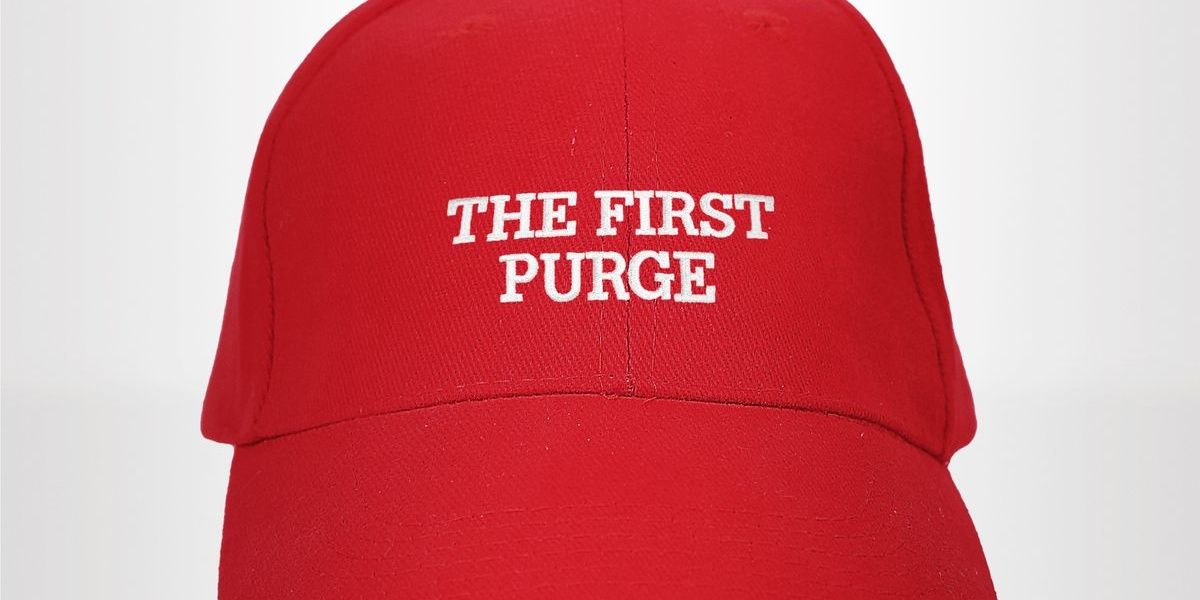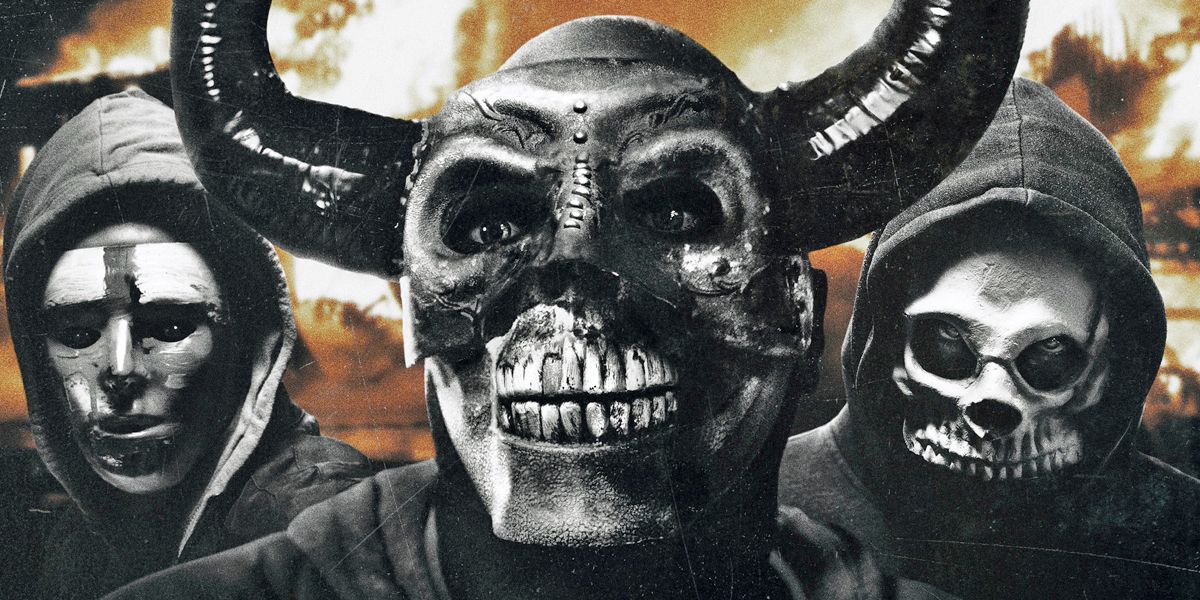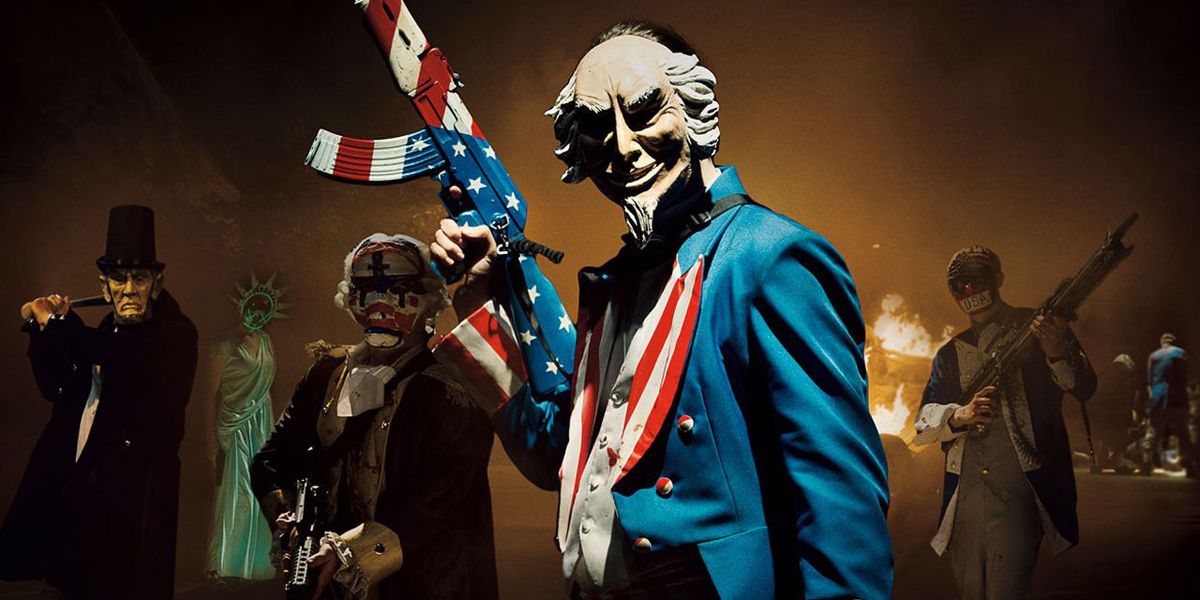WARNING: The following article contains spoilers for The First Purge, in theaters now.
The announcement of The First Purge came with a teaser poster of the film's title printed in white on a red hat. It's a striking image, to be sure, considering that it was an obvious riff on Donald Trump's "Make America Great Again" hats. The poster was a bold statement, and a clear indication that the franchise, which always examined a dark future only one strange day away from the current United States, was going to be even more politically relevant than ever.
The previous films in the dystopian horror franchise were framed within the concept that a new political party, the New Founding Fathers of America, had risen to power, and enacted the annual Purge as a means to drive down crime rates and boost the economy. The world of the Purge franchise is steeped in darkness and violence, but it never felt too far removed from our own.
RELATED: The First Purge’s Ending Reveals the Franchise’s Darkest Secret
In The First Purge, that statement is even more true, seeing as how we see the circumstances that led to the implementation of the annual rite, in which all crime committed within a designated 12-hour period is consequence-free. As we travel back to the beginnings of the Purge, it's clear the fourth film in the series is its most political.
As the film opens, we witness experts interrogating the state of mind of certain people. These researchers are recruiting people for the social experiment that will become known as the Purge, and their questions are meant to tap into the anger and the isolation that some may feel. Survival is what drives them, and their anger at a world that's keeping them down is what fuels their actions. It's a feeling that can easily be extrapolated in the real world, with more and more people feeling alienated by societal divide, racial tensions and poverty. Those looking to make the Purge a reality are preying on those feelings, and turning them to their advantage.
RELATED: How The First Purge Sets Up Another Sequel
But that's not all. Through news segments, we also see the sociopolitical state of the world of The First Purge is much like our own. Unemployment is on the rise, the 99 percent are still governed by the 1 percent, an opioid crisis is gripping the country, and crime rates are not going down. That allows the New Founding Fathers of America to try something new. After exhausting all other possibilities, the party believes that one night of free crime will get the rage out the people's systems. That will allow the crime rates to drop, and with it will come many other benefits, like a surge in the economy -- mainly in weapons sales. With gun control a hot-button issue, The First Purge offer a dark commentary on the possible future of that industry.
However, the biggest political point of The First Purge deals with the underprivileged and minorities. Throughout the film, we're reminded that the poor are the main targets of the Purge study, as it's assumed they will be the first to jump at each other's throats. But that's not the case. Instead, the NFFA has to employ mercenaries disguised as local gangs to incite people to kill one another. That's where things take a frightening turn, with white sheet-wearing killers taking aim at African-Americans, and Nazi-inspired strike forces killing every person in sight. And then there's the truly disturbing scene of purgers disguised as police officers, complete with smiling masks, beating on an African-American man. It's difficult to escape the feeling that many of these scenarios were ripped straight from the headlines.
RELATED: The First Purge Early Reviews Are Kind of a Massacre
The First Purge paints a dark reflection of our modern reality. It uses the current ills of the world to imagine an unbearably dark future -- one that we have to remind ourselves will never come to pass.
Directed by Gerard McMurray from a script by series creator James DeMonaco, The First Purge stars Y’Lan Noel, Lex Scott Davis, Joivan Wade, Luna Lauren Velez, Kristen Solis and Marisa Tomei. The film is in theaters now.



